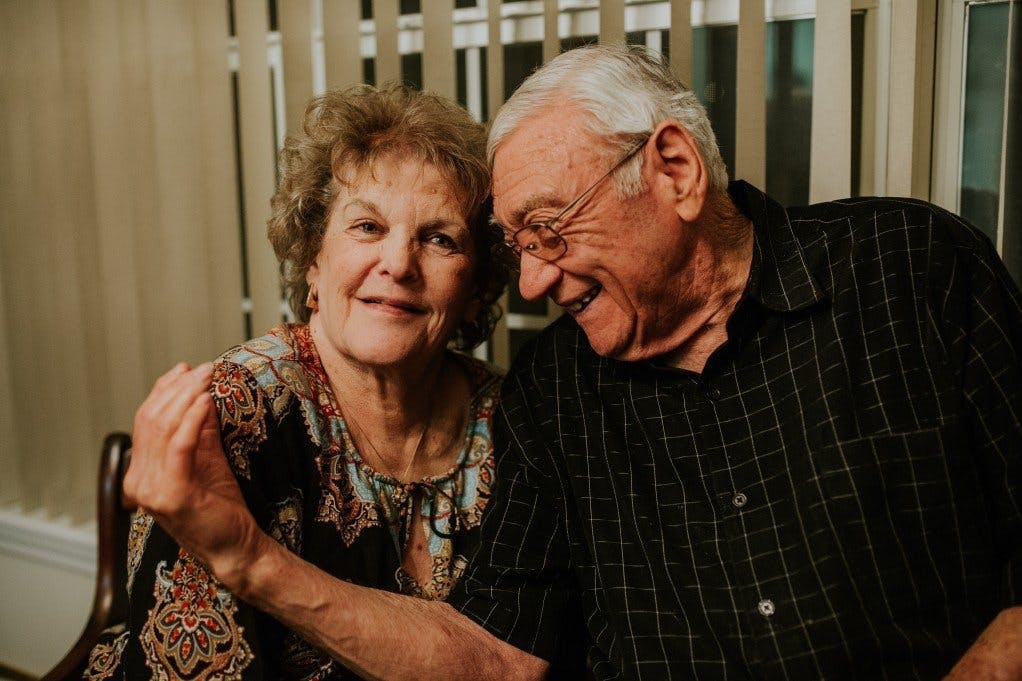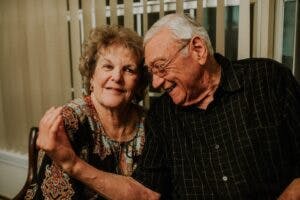What Is Cardiovascular Disease?

Cardiovascular disease is the most common disease in American adults and also the deadliest.

Almost every American knows someone who has suffered or is currently suffering from some form of cardiovascular disease. Yet the specifics of this family of diseases are often misunderstood. But everyone should know the basics of cardiovascular disease. After all, cardiovascular diseases are incredibly common, not to mention deadly. Getting informed can help you be a better advocate for good cardiovascular health.
Cardiovascular diseases are particularly deadly for American senior citizens. If you have a senior loved one in your life, it’s important to know what you can do to help them live a longer, fuller, healthier life, even if they already suffer from some form of cardiovascular disease. Read on for an overview of cardiovascular disease.
What is Cardiovascular Disease?
This isn’t a single disease but a family of diseases that affect the cardiovascular system, including the heart and blood vessels. Common conditions include atherosclerosis—hard plaque buildup in the arteries that limit blood flow, and heart attacks—the death of heart tissue due to a blood clot. While strokes affect the brain, this disease in which brain tissue receives insufficient blood and begins to die is usually attributed to a blood clot in the arteries below the brain.
There are many common subclasses of cardiovascular disease. Valve disorders refer to conditions like regurgitation, in which the valves between the chambers of the heart don’t open and close properly and blood leaks between chambers. Arrhythmias, meanwhile, refer to conditions with an abnormal heartbeat, such as Wolff-Parkinson-White syndrome. Vascular disorders are limited to your blood vessels and include peripheral artery disease, in which your limbs receive insufficient blood supply.
Facts about Cardiovascular Disease
According to the American College of Cardiology, cardiovascular disease is the number 1 cause of death for seniors. For those above age 75, high blood pressure is the most common heart condition.
Cardiovascular disease can affect everyone, no matter your age, activity level, or lifestyle. In fact, blood pressure has been dubbed the “silent killer” because this disease linked to many causes of cardiovascular-related death can be severe without even showing symptoms.
According to the Centers for Disease Control and Prevention, one person dies from cardiovascular disease every 37 seconds in the US alone! Their research has found that individuals of every age, race, nationality, and sex are at risk of cardiovascular disease. However, your risk increases as you age, putting senior citizens at the highest risk.
Signs and Symptoms
There are many well-known signs and symptoms of cardiovascular disease. Signs that doctors often recognize include obesity, diabetes, high blood pressure, high cholesterol, and a prominent family history of cardiovascular disease. All of these are early warning signs that your cardiovascular system may be at risk.
Symptoms of cardiovascular disease that you may recognize in yourself or others include chest pain or tightness, shortness of breath, dizziness, or your heart beating in an unusual way.
Causes
What causes cardiovascular disease? There are three known risk factors that can directly cause some form of advanced cardiovascular disease: smoking, high cholesterol, and high blood pressure. While high blood pressure and cholesterol are considered cardiovascular disease themselves, they’re directly linked to other diseases, including heart attacks, strokes, and coronary artery disease. Take steps to quit smoking, lower your cholesterol and blood pressure, and focus on living a healthy lifestyle.
Being sedentary and eating a diet high in fats, oils, cholesterol, and sodium can all cause some form of cardiovascular disease. Drinking too much alcohol is also a contributor. Those with a family history of cardiovascular disease may inherit the same diseases. However, cardiovascular diseases are so common that everyone should consider themselves at risk.
Why Treatment is Necessary
Medical treatment for cardiovascular disease can save your life. At the very least, visit a cardiologist to have your overall heart, vascular, and blood health tested. Seniors should be especially closely followed by a physician. Once diagnosed with some form of cardiovascular disease, treatment is essential.
Treatments like anticoagulant medication can help prevent a heart attack or other life-threatening cardiovascular disease. Medications that target cholesterol and blood pressure are especially useful for reducing one’s risk. While lifestyle changes can improve cardiovascular health, these diseases are so deadly that it often takes serious medical intervention to prevent morbidity.
Then there are diseases that are almost certainly deadly without medical treatment. For example, those with serious heart arrhythmia may need a pacemaker in order to have a healthy heartbeat. Those with serious plaque buildup in or around the heart need treatments such as heart bypass surgery or a stent implant to prevent death.
If you or a loved one may be suffering from cardiovascular disease, call a doctor and discuss the symptoms you or they may be having. Medical intervention and cardiovascular treatments can save lives.
In-Home Care for Seniors with Cardiovascular Disease
It takes more than a doctor and access to a hospital to live with cardiovascular disease. Seniors may need assistance with everyday tasks, including taking medications and following other physician orders, such as following a heart-healthy diet based on homemade meals. That’s because there’s a strong link between cardiovascular disease in seniors and significant functional decline or difficulties with everyday tasks.
In-home caregivers are professional care workers who assist people with specific needs in the comfort and privacy of their own homes. They can assist seniors with a myriad of everyday tasks, such as hygiene and mobility, but they can also help seniors living with or at risk of cardiovascular disease. For example, home caregivers help seniors to follow a strict medication plan. If your senior loved one is taking benazepril, captopril, enalapril, fosinopril, lisinopril, or other heart health medications, taking them exactly as directed and when instructed can help prevent a deadly cardiac incident such as heart failure.
Therapeutic treatments, including beta blocker therapy, can help seniors live with congestive heart failure, but they may need an in-home caregiver’s assistance to follow their therapy program precisely. Depending on the service provider, some in-home caregivers can even provide rides to medical treatment centers, including an inpatient hospital for surgery or serious diagnostic tests like a cardiac catheterization. Seniors can also receive transportation to outpatient treatment facilities for cardiovascular care services such as thrombolytic therapy, a lifesaving treatment for blood clots.
Finding the Right In-Home Caregiver
While cardiovascular diseases may be serious, a combination of medical treatment and in-home care can help your senior loved one live a longer, happier, and healthier life. Call 24 Hour Home Care at (800) 522-1516 to find the caregiver office nearest you. Let us know how we can provide a trained and experienced caregiver to provide your loved one with everyday assistance in their own home. You’ll enjoy the peace of mind that your loved one is in good hands.
